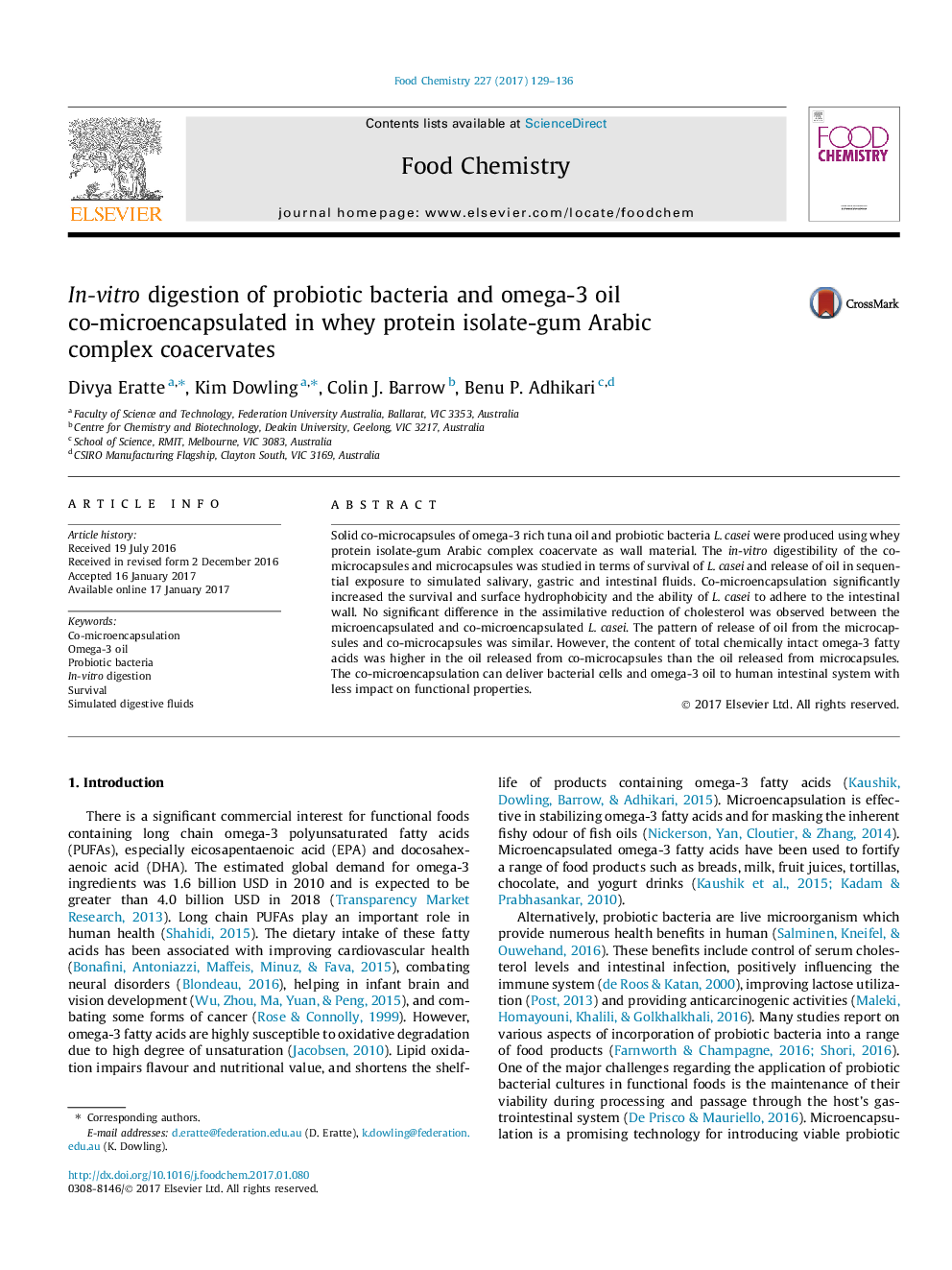| Article ID | Journal | Published Year | Pages | File Type |
|---|---|---|---|---|
| 5133280 | Food Chemistry | 2017 | 8 Pages |
â¢In-vitro digestion of co-microcapsules containing tuna oil and L. casei was investigated.â¢Co-encapsulation of omega-3 promoted the survival of probiotic cells in simulated gastrointestinal system.â¢The intestinal adhesion ability of L. casei was improved by co-encapsulation.â¢The pattern of release of oil from the microcapsules and co-microcapsules was similar.â¢Total omega-3 fatty acids content was significantly higher in co-microcapsules.
Solid co-microcapsules of omega-3 rich tuna oil and probiotic bacteria L. casei were produced using whey protein isolate-gum Arabic complex coacervate as wall material. The in-vitro digestibility of the co-microcapsules and microcapsules was studied in terms of survival of L. casei and release of oil in sequential exposure to simulated salivary, gastric and intestinal fluids. Co-microencapsulation significantly increased the survival and surface hydrophobicity and the ability of L. casei to adhere to the intestinal wall. No significant difference in the assimilative reduction of cholesterol was observed between the microencapsulated and co-microencapsulated L. casei. The pattern of release of oil from the microcapsules and co-microcapsules was similar. However, the content of total chemically intact omega-3 fatty acids was higher in the oil released from co-microcapsules than the oil released from microcapsules. The co-microencapsulation can deliver bacterial cells and omega-3 oil to human intestinal system with less impact on functional properties.
